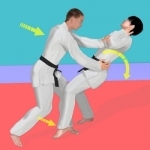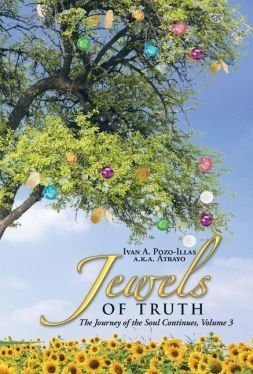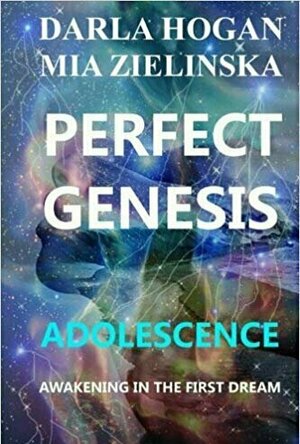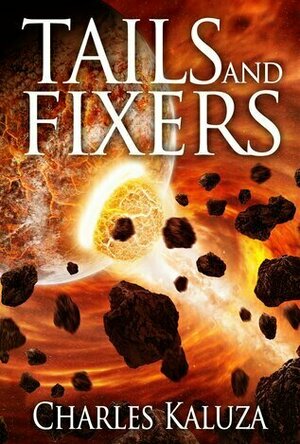
Angewandte Chemie International Edition
Education and Magazines & Newspapers
App
A leading chemistry journal is now available on your iPad and iPhone. Fresh from the newsstand,...

Football Tricks 3D Tutorials
Sports and Education
App
Soccer tricks tutorials in 3D. Train soccer tricks to get past defenders and boost your skills on...

Aikido Academy
Sports and Health & Fitness
App
Discover the secrets of Aikido training and fighting with this comprehensive collection of 766...

Rich Dad Coaching
Education and Finance
App
Description: The Rich Dad Coaching app allows coaching students to instantly access your program...
Brooks's, 1764-2014: The Story of a Whig Club
Hugh Johnson, John Ingamells, Philipp Ziegler and Charles Sebag-Montefiore
Book
One of the many aspects of London that never failed to attract comment from foreign visitors in the...

Python Programming Language - Run Code & Learn Quickly with Fundamentals Tutorial
Reference and Utilities
App
The new Python 3 programming language for iPad, iPhone and iPod touch. Programming language is a...

Clean and Green Eating
Food & Drink and Health & Fitness
App
The Clean & Green Eating App includes an abundance of healthy recipes for the whole family to enjoy!...
Kara Skinner (332 KP) rated Jewels of Truth: The Journey of the Soul Continues, Vol. 3 in Books
Jun 12, 2019
Page Count: 258 pages
My rating: 3 out of 5 stars
Your spiritual journey of self-improvement continues in volume three of the Jewels of Truth series by Ivan A. Pozo-Illas, a.k.a. Atrayo. In this new compendium of 365 statements of spiritual wisdom, Atrayo shares daily inspirational tools to explore all of the must-haves in your life, including love, faith, forgiveness, and certainly, God(dess).
From these poignant and concise statements, rather than lengthy diatribes, you can easily and quickly find the essential kernel of truth to help you on your journey today.
No matter your religious or spiritual traditions or background, this volume is written from an all-inclusive perspective. Jewels of Truth: The Journey of the Soul Continues is the sacred and uplifting result of clairvoyant automatic writing as the genesis motivation to reach the masses. The channeled spirit teachers are all angelic in divine nature. They are nameless as a united continuum of the Holy Spirit.
Spirituality has a core need in our lives. No matter where you are on your journey, these messages of hope are shared in love.
Let me start off by saying that I am really not qualified to be reviewing this book. Ivan A. Pozo-Illas was generous enough to donate to the Borgen Project in exchange for an honest review. While I am happy to do it, I am probably not doing this book justice.
As someone with absolutely no background in philosophy or religion, this was a difficult book to get through and review.
I do know that despite the author’s claims of it being all-inclusive for all religious backgrounds, the book was more tilted to the Christian faith, with most of the proverbs talking about God, Jesus, and the Holy Spirit. There were plenty of mentions of God(dess) as well, which was the basically only indication these statements of wisdom were not strictly for Christian. While Mohammed, Buddha, and Krishna are mentioned maybe four times, and always in a list of other important religious figures from different religions (never for their specific teachings), Jesus is mentioned 22 times, usually in passages like this:
It has been written in the Biblical New Testament that “Jesus the Christ” once stated that to enter the “Kingdom of God” one must be as innocent as a child in spirit.
On top of that, these statements of wisdom, to me at least, were pretty long and wordy. It was difficult to get through. A lot of the time I did not understand what was being said, but that could just be chalked up to my own ignorance on the subject.
This is probably more useful to people more educated about spirituality than me, but it is definitely not for the everyday person, at least not most of it. There were some things that were interesting, like this quote celebrating diversity in religions.
No one religion can have a monopoly on God and/or on his favoritism. To say so is a lie and a sin to the diversity within Creation itself.
Phil Leader (619 KP) rated Perfect Genesis: Adolescence in Books
Nov 21, 2019
The plot follows Leonardo Khalid, a genetically engineered genius who has dedicated his life to improving life for mankind. However when he is taken critically ill he agrees to undergo a procedure to scan and record is brain. He is warned that during the process he will appear to inhabit a very real and long lasting dream as his brain is stimulated.
The dream is extremely vivid - so much so that we don't see it just from Leonardo's point of view. So is it a dream? Or a very real future world that he has somehow been projected into? Leonardo certainly believes he is in a dream, but does that condone some of his more morally questionable actions?
There are plenty of questions raised by this book. As Hogan says in a brief introduction, this book is supposed to stay with the reader long after they have read it, and it will certainly do that. At times it is an uncomfortable read - the dream societies place little value on human life and women in particular are treated very badly. Death, violence and sexual exploitation are daily hazards for the members of the societies described, but these are engineered places, not designed to benefit the individual human but to ensure the longevity of the society itself. They have been created with cold and clinical efficiency with no regard for the individual members of the citizenry.
This is a huge dichotomy and the heart of the book. The story itself - Leonardo exploring the land of his dream and overcoming the various obstacles that hinder him and his companions - skates along the top at a good pace, fizzing between plot points and twists, summoning the reader on to read just one more page. But underneath the dark heart will be throwing up awkward questions.
Exploitation of all sorts abounds, particularly sexual exploitation (not all of it men exploiting women). These sections can be an uncomfortable read but they are supposed to be - the questions around power and the abuse of power are valid and the reader is not supposed to be entirely sympathetic with any of the characters or their actions - even Leornardo. The civilisations are frequently brutal, either because of a dangerous environment or a ruthless ruler. People get hurt, people get abused, people die (sometimes horribly) but always the society lives on.
Read this book if you want to have a fantastic story exploring different places but at the same time have something to think about. By the end you will have seen what can happen if the concept of an ideal society is pursued to its limits. And it's not a utopia.
And yes this book will stay with me for a while. Definitely one of the best reads of 2014. Thoroughly recommended.
Rating: Sexual scenes, sexual violence and some torture.
Phil Leader (619 KP) rated Tails and Fixers in Books
Nov 26, 2019
The main protagonist is Floyd, an ex-military pilot. He is dying from kidney failure until he is given a lifeline - there is a new medical technique that can regenerate his kidneys using his own stem cells, but it will only work if he is put into 'hibernation' for 50 years. And oh, if you accept we will also be sending you on a 50 year trip to another solar system which has been broadcasting radio signals.
The book starts with Floyd waking at his destination and taking a crash course in the language of the alien planet's inhabitants. That is if there is anyone to speak to as 8 years before he arrived an asteroid struck the planet and left the surface desolated. Floyd must find if there any survivors and provide any assistance he can.
From the asteroid impact on, nothing goes to plan and Floyd must use his ingenuity just to survive himself, aided only by the ship's computer and whatever stores Earth thought to provide him with (the lack of beer being his main concern). Fortunately Floyd is very practical and able to improvise solutions to a number of problems as he struggles to survive in the hostile environment.
Once he has established a base he makes contact with the survivors of the asteroid impact, living in an underground bunker. There are humanoids with tails and also a genetically engineered slave race that do all the practical work - the Fixers.
Although they appear to be at least physically like Floyd their society is very alien indeed. Floyd immediately questions how their civilisation works and talks to a number of aliens - some he likes, others he dislikes enormously. Floyd must work out if he fits in and if so how.
The book certainly didn't go as I thought it would. Just as it seems the normal path will be followed in the narrative Kaluza takes a sharp turn and throws everything up in the air and sees how they land. This makes it an interesting read and stops it becoming bogged down in one mode or another. I found the end particularly - and unexpectedly - moving and it made a very suitable ending to what had gone before.
This is the best kind of science fiction. It uses the concept of the alien world to throw sharp relief on our understanding of subjects such as philosophy, genetics, engineering and sociology. There are some clever ideas (I particularly liked the way we got to see the results of Floyd's work beyond the end the novel in a very ingenious flash-forward sequence). The love story is well told and keeps the story balanced between the sometimes heavier going in the more profound themes without being too overworked.
Overall a book I enjoyed and wanted to keep coming back to. I will have to pick up another of the author's books sometime as he clearly has great ideas.



